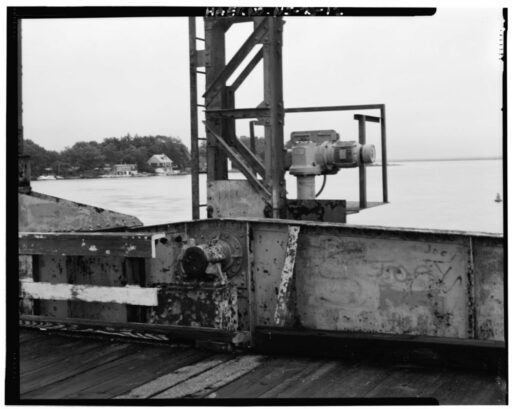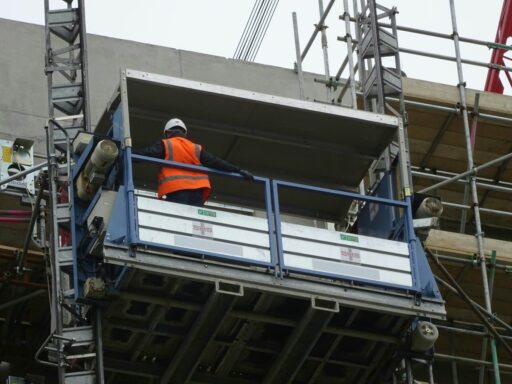Choosing the right general contractor is crucial for the success of any construction project in Phoenix. This article aims to guide you through the process of selecting a top-tier contractor, introducing you to some of the most reputable firms in the area, and providing insights into the comprehensive services they offer. We’ll also discuss how to effectively budget for your project and navigate the complex legal and regulatory landscape of the construction industry.
Key Takeaways
- Identifying a top general contractor involves evaluating their experience, licensing, customer feedback, insurance policies, and project management skills.
- Sundt Construction, Inc., Kitchell Corporation, McCarthy Building Companies, Inc., DPR Construction, and The Weitz Company, LLC are among the leading general contractors in Phoenix.
- A full spectrum of services is essential for a successful construction project, including pre-construction planning, construction management, design-build services, and post-construction support.
- Effective budgeting for a construction project encompasses estimating costs, employing value engineering, exploring financing options, managing expenses, and preparing for potential cost overruns.
- Compliance with building codes, zoning laws, contractor liability, workplace safety, and environmental regulations is mandatory to avoid legal issues and ensure the integrity of the construction project.
Criteria for Selecting a Top General Contractor

Experience and Expertise
When selecting a top general contractor in Phoenix, experience and expertise are paramount. A contractor’s history of completed projects serves as a testament to their capability and reliability. Look for a diverse portfolio that includes projects similar to your own in scope and complexity.
- Track record of successful projects
- Specialized skills for specific construction types
- Awards and recognitions in the industry
It’s essential to choose a contractor who not only has a solid foundation of experience but also stays abreast of the latest construction techniques and building materials.
Contractors with a strong presence in the local market often have a deeper understanding of the regional nuances, which can be crucial for the success of your project. Renovations by Design is one such example, known for surpassing expectations with its commitment to quality and innovation.
Licensing and Certification
Ensuring that a general contractor is properly licensed and certified is crucial for the legality and quality of your construction project. Licensing requirements vary by state and locality, but they generally include passing an exam and proving industry experience. Certification, on the other hand, is an additional credential that can demonstrate a contractor’s commitment to certain standards and expertise in specialized areas of construction.
- Verify the contractor’s license with the state’s licensing board.
- Check for certifications from recognized industry organizations.
- Ensure that the contractor’s licenses and certifications are current and in good standing.
It’s important to remember that a valid license is not just a formality; it’s a safeguard that the contractor has met the minimum criteria to operate legally in your area. Hiring a licensed and certified contractor can help protect you from substandard work and potential legal issues.
When considering contractors for your project, take the time to confirm their credentials. This due diligence can save you from many headaches down the line and ensure that your project is in capable hands.
Customer Satisfaction and Reviews
When it comes to construction, the voice of the customer is a pivotal measure of a contractor’s performance. Customer satisfaction and reviews can significantly influence a contractor’s reputation and are often a deciding factor for potential clients. A pattern of positive feedback is a strong indicator of a contractor’s reliability and quality of work.
- Look for contractors with a high number of positive reviews.
- Pay attention to how contractors handle negative feedback.
- Consider the consistency of customer satisfaction over time.
It’s essential to delve beyond the surface of star ratings and read the actual customer testimonials to get a true sense of a contractor’s strengths and weaknesses.
Remember, a contractor who values their clients will not only deliver quality work but will also foster a positive construction experience. This commitment is reflected in the testimonials and feedback they receive from past clients.
Insurance and Bonding
Ensuring that a general contractor has adequate insurance and bonding is crucial for the protection of both the property owner and the contractor. Insurance policies safeguard against accidents and damages, while bonding provides a financial guarantee that the contractor will fulfill their obligations.
- General Liability Insurance: Covers third-party claims for bodily injury and property damage.
- Workers’ Compensation: Protects employees in case of work-related injuries or illnesses.
- Professional Liability Insurance: Addresses claims of negligence or errors in the professional services provided.
- Performance Bonds: Ensure the completion of the project according to contractual terms.
- Payment Bonds: Guarantee that subcontractors and suppliers will be paid.
It’s important to verify that the coverage limits are appropriate for the size and scope of your project. Inadequate insurance and bonding can lead to significant financial risks and project delays.
Project Management and Timeliness
Effective project management is crucial for the timely completion of any construction project. A general contractor must have a robust system in place to track progress, manage resources, and ensure that milestones are met according to the project timeline.
- Establish clear project objectives and milestones
- Regularly update all stakeholders on progress
- Swiftly address any issues that may cause delays
Timeliness in construction not only affects the completion date but also has significant implications for budget and overall project success. Contractors who excel in project management can deliver projects on schedule, which is a key factor for client satisfaction.
Ensuring that the project stays on track requires constant vigilance and a proactive approach to problem-solving. Contractors who demonstrate consistent performance in managing complex projects and meeting deadlines are often sought after in the industry.
Leading General Contractors in Phoenix

Sundt Construction, Inc.
Sundt Construction, Inc. stands out as a premier general contractor in Phoenix with a rich history dating back to 1890. Their commitment to innovation and quality has earned them a reputation for excellence in the construction industry. Sundt’s portfolio showcases a diverse range of projects, from educational institutions to healthcare facilities, and they are known for their collaborative approach to construction.
Sundt Construction emphasizes a team-oriented culture, ensuring that every project benefits from a synergy of expertise and client-focused service.
The company prides itself on its skilled workforce and state-of-the-art technology, which together deliver projects that meet and often exceed client expectations. Below is a snapshot of Sundt Construction’s key attributes:
- Extensive experience in various construction sectors
- A strong focus on safety and sustainability
- Proven track record of completing projects on time and within budget
Sundt Construction, Inc. not only excels in building structures but also in building lasting relationships with their clients, making them a top choice for any construction project in Phoenix.
Kitchell Corporation
Kitchell Corporation stands out as a premier general contractor in Phoenix, known for its commitment to quality and innovation. With a history spanning over 70 years, Kitchell has built a reputation for excellence in the construction industry. The company’s portfolio showcases a wide range of projects, from healthcare facilities to educational institutions, each reflecting their expertise in handling complex constructions.
Kitchell emphasizes a collaborative approach, working closely with clients to ensure their vision is realized. Their services extend beyond mere construction; they offer comprehensive solutions that cover every phase of the project lifecycle.
Kitchell’s dedication to sustainability and eco-friendly practices is evident in their numerous LEED-certified projects, making them a top choice for clients looking for green building options.
The company’s commitment to client satisfaction is reflected in their robust project management strategies, which prioritize efficiency and timeliness. Clients can expect a seamless experience from start to finish when partnering with Kitchell Corporation.
McCarthy Building Companies, Inc.
McCarthy Building Companies, Inc. stands out as a prominent figure in the Phoenix construction landscape. With a reputation for delivering complex projects on time and within budget, they have become a go-to contractor for clients across various sectors. Their commitment to safety and quality has been consistently recognized in the industry.
- Strong emphasis on safety and employee well-being
- Diverse portfolio across healthcare, education, and commercial sectors
- Innovative use of technology in construction processes
McCarthy’s approach to construction is holistic, ensuring that every aspect of the project lifecycle is managed with precision and care.
Their team’s expertise is backed by a robust set of services that cater to the unique needs of each project, from initial design to final handover. Clients can expect a seamless experience when working with McCarthy, underscored by their dedication to client satisfaction and project excellence.
DPR Construction
DPR Construction stands out in the Phoenix area for its innovative approach to complex and technically challenging projects. Specializing in advanced technology, healthcare, and commercial buildings, DPR has built a reputation for delivering projects on time and within budget.
- Commitment to safety and quality
- Use of integrated project delivery methods
- Strong focus on sustainable construction practices
With a team of dedicated professionals, DPR Construction ensures that each project is managed with the utmost attention to detail and client collaboration.
Their transparent communication and problem-solving skills have earned them a loyal client base. The company’s ability to adapt to the evolving construction landscape makes them a top choice for projects of all sizes.
The Weitz Company, LLC
The Weitz Company, LLC, with its long-standing presence in the construction industry, has built a reputation for delivering high-quality projects across various sectors. Their commitment to excellence is reflected in the satisfaction of their clients and the loyalty of their employees.
Established in 1855, The Weitz Company has evolved into a national leader with a strong foothold in Phoenix. They offer a comprehensive range of services, from pre-construction planning to post-construction support, ensuring that every phase of the project is executed with precision.
The Weitz Company’s approach to construction is centered around collaboration and innovation, aiming to exceed client expectations while adhering to the highest industry standards.
Their project portfolio showcases a diverse array of structures, including commercial, residential, and institutional buildings, which demonstrates their versatility and capability to handle complex construction challenges.
Understanding the Scope of Services Offered

Pre-construction Planning
Pre-construction planning is a critical phase where the groundwork for a successful project is laid. It involves a series of strategic steps to ensure that the construction process goes smoothly from start to finish.
- Site Analysis: Assessing the conditions and constraints of the project location.
- Feasibility Studies: Evaluating the project’s viability and potential challenges.
- Budget Estimation: Establishing a realistic cost framework for the project.
- Scheduling: Outlining a timeline for project milestones and completion.
- Risk Management: Identifying potential risks and developing mitigation strategies.
Pre-construction planning sets the stage for effective resource allocation and helps in identifying potential issues that could impact the project timeline or budget. It’s a proactive approach to construction management that can save time and money in the long run.
Construction Management
Construction management is a critical service offered by general contractors to ensure that every aspect of the building process is executed efficiently and effectively. Effective construction management can significantly reduce the risk of project delays and cost overruns. A general contractor’s role in this domain includes coordinating with architects, subcontractors, and suppliers, as well as managing the day-to-day operations on the construction site.
Key responsibilities in construction management include:
- Scheduling and timeline coordination
- Resource allocation and material procurement
- Quality control and workmanship oversight
- Safety management and regulatory compliance
- Communication between all project stakeholders
Construction management is not just about overseeing the workforce; it’s about ensuring that every piece of the project puzzle fits together seamlessly, from the initial planning stages to the final touches.
For more detailed insights, many general contractors provide resources on their website page, which lists various types of contractors and discusses the role of a general contractor in construction financing and management.
Design-Build Services
Design-build services streamline the construction process by combining design and construction expertise into a single contractual entity. This approach fosters collaboration between designers and builders from the project’s inception, which can lead to more innovative solutions and efficient workflows. Clients benefit from a unified team working towards a common goal, which often results in reduced timelines and costs.
- Single Point of Responsibility: The design-build contractor is accountable for all aspects of the project, from conception to completion.
- Enhanced Communication: With designers and builders working together, communication is more direct and issues can be resolved swiftly.
- Faster Project Delivery: Integrated services can significantly shorten the project timeline by overlapping design and construction phases.
- Cost Savings: Early contractor involvement allows for better cost estimation and potential savings through value engineering.
The design-build model is particularly advantageous for clients who value a turnkey solution for their construction needs. It simplifies decision-making and can mitigate risks associated with project management.
Sustainability and Green Building
In the realm of construction, sustainability and green building practices are no longer optional; they’re essential. Leading contractors in Phoenix are integrating eco-friendly materials and energy-efficient systems into their projects to meet the growing demand for sustainable living spaces.
- Use of recycled and locally-sourced materials
- Implementation of renewable energy sources like solar panels
- Water conservation systems such as rainwater harvesting and greywater recycling
Embracing green building techniques not only contributes to environmental preservation but also ensures long-term cost savings for homeowners.
The trend towards sustainability is evident in the rise of energy-efficient home builders in the Phoenix area. These builders are setting the standard for responsible construction, minimizing the ecological footprint of new homes while maximizing comfort and efficiency.
Post-construction Support
Once the dust settles and the construction crew has left, the importance of post-construction support comes into play. Ensuring that your new space is fully operational and any issues are promptly addressed is crucial for long-term satisfaction. Post-construction services often include a walkthrough to identify any areas needing additional attention, training on new systems, and a review of warranties and maintenance schedules.
Post-construction support is not just about fixing any immediate problems; it’s about establishing a lasting relationship between the contractor and the client, providing peace of mind that any future concerns will be handled with the same professionalism and expertise as the construction itself.
Here’s a list of typical post-construction support services:
- Final inspections and punch list completion
- Assistance with occupancy permits
- Warranty reviews and management
- Training on system operations and maintenance
- 24/7 emergency response availability
Remember, a reputable contractor will stand behind their work and be available to assist you even after the project is officially completed.
Budgeting for Your Construction Project

Estimating Project Costs
Accurately estimating project costs is crucial for setting a realistic budget and ensuring the financial viability of a construction project. It involves a detailed analysis of all potential expenses, from materials to labor.
To begin with, a comprehensive list of all required items and services should be compiled. This includes everything from the cost of raw materials to the expenses associated with hiring subcontractors. Here’s a simplified example of how costs might be broken down:
- Raw materials (e.g., lumber, concrete)
- Labor (e.g., carpenters, electricians)
- Equipment rental
- Permits and fees
- Contingency reserves
It’s essential to consider both direct and indirect costs when creating a budget. Direct costs are those that are directly tied to the physical construction, such as materials and labor. Indirect costs might include administrative expenses and other overheads.
Remember, the goal is to develop a comprehensive and accurate estimate that reflects the true scope of the project. This will serve as a guide throughout the construction process and help in avoiding unexpected financial setbacks.
Value Engineering
Value engineering is a critical process in construction that aims to optimize the project’s value by identifying and eliminating unnecessary expenditures, while maintaining or improving the project’s quality, reliability, and performance. It is a systematic method that enhances the project’s overall value.
The essence of value engineering lies in its structured approach to analyzing the design, materials, and construction methods. This approach ensures that every element of the project contributes to its overall functionality and cost-effectiveness. For instance, substituting materials with more cost-effective alternatives that do not compromise quality can lead to significant savings.
Value engineering should be integrated early in the project planning phase to maximize its benefits.
Here are six steps commonly involved in the value engineering process:
- Gather a multidisciplinary team.
- Analyze the project’s goals and requirements.
- Identify the functions of each project component.
- Generate alternative solutions for delivering those functions.
- Evaluate the alternatives based on cost and performance.
- Implement the most cost-effective solutions.
Financing Options
Securing adequate financing is a critical step in ensuring the successful completion of a construction project. Different financing options cater to the varying needs and circumstances of construction projects. It’s important to understand the options available and choose one that aligns with your project’s scale, timeline, and budget.
- Traditional Loans: Banks and financial institutions offer construction loans that can be tailored to project specifics.
- Government Loans and Grants: For qualifying projects, government-backed loans and grants can be a viable option.
- Trade Credit: Suppliers may provide materials on credit, allowing for payment after project completion.
- Investor Financing: Private investors or investment groups may be interested in funding construction in exchange for a stake in the project or profits.
Careful consideration of each financing option will help in making an informed decision that supports the project’s financial health. It’s essential to weigh the pros and cons, including interest rates, repayment terms, and the potential impact on cash flow.
Understanding the nuances of each option, such as the trade credit mentioned in industry guides, can be the difference between a project that moves forward smoothly or one that encounters financial hurdles.
Managing Project Expenses
Effective management of project expenses is crucial to ensure that your construction project stays within budget and is completed without financial hiccups. Developing a clear financial plan and closely monitoring expenses throughout the project can prevent cost overruns and unexpected expenses.
- Create a detailed budget that includes all expected costs, from materials to labor.
- Track expenses regularly to identify and address any discrepancies early on.
- Maintain open communication with your contractor to stay informed about potential changes affecting the budget.
- Consider setting aside a contingency fund for unforeseen costs.
It’s essential to be proactive about expense management. Regular financial reviews and adjustments can keep your project on track financially.
Remember, a successful construction project not only meets its design and functionality goals but also adheres to the predetermined financial framework. By taking a disciplined approach to managing project expenses, you can avoid the stress of financial surprises and ensure a smoother construction process.
Cost Overrun Considerations
Cost overruns can be a significant challenge in construction projects, often resulting from unforeseen circumstances or changes during the project. Effective management and anticipation of potential overruns are crucial to maintaining the budget and ensuring the project’s financial viability.
To mitigate the risks of cost overruns, it’s important to understand their root causes, which can include scope creep, regulatory changes, and market fluctuations. A proactive approach involves regular budget reviews, contingency planning, and clear communication with all stakeholders.
Establishing a transparent process for handling changes and additional costs can help prevent disputes and maintain project momentum.
Here are some strategies to consider for managing cost overruns:
- Conduct thorough pre-construction planning.
- Implement rigorous change order procedures.
- Maintain a contingency fund for unexpected expenses.
- Regularly communicate with the project team about financial status.
Navigating Legal and Regulatory Compliance

Building Codes and Permits
Navigating the complexities of building codes and permits is a critical step in ensuring your construction project complies with local, state, and federal regulations. These codes are designed to ensure the safety, health, and welfare of the public as well as the integrity of the building structure.
It’s essential to understand that obtaining the necessary permits is not just a bureaucratic step; it’s a legal requirement that can affect the timeline and legality of your construction project.
To streamline the permit acquisition process, consider the following steps:
- Research local building codes and zoning requirements.
- Prepare detailed plans that comply with these codes.
- Submit the necessary documentation to the appropriate authorities.
- Schedule inspections as required during construction.
Failure to adhere to building codes or to obtain the necessary permits can result in costly delays, fines, or even the halting of your construction project. Therefore, it’s advisable to work with a contractor who has a proven track record of managing this aspect of construction effectively.
Zoning Laws and Regulations
Navigating the complex web of zoning laws and regulations is crucial for any construction project in Phoenix. These laws determine what can be built and where, affecting everything from land use to the height and density of buildings. It’s essential to understand the local zoning ordinances to ensure your project complies with the specific requirements of the area where you’re building.
Zoning regulations are not just about land use; they also include detailed definitions that can impact your project. For instance, the Phoenix City Code provides explicit definitions for various types of structures, which can influence your construction plans.
Compliance with zoning laws is mandatory and non-negotiable. Failure to adhere can lead to costly delays, fines, or even the halting of your construction project. Here’s a brief overview of the steps involved in ensuring compliance:
- Review the local zoning ordinances specific to your project’s location.
- Consult with city officials or a zoning expert to clarify any uncertainties.
- Apply for the necessary zoning permits and await approval before commencing construction.
- Adhere to all the conditions and restrictions outlined in your zoning permit during construction.
Contractor Liability Issues
When undertaking a construction project, understanding the liability issues that may arise with contractors is crucial. Contractor liability can encompass a range of issues, from accidents on the construction site to failure to complete the project as per the contract. It’s important for both the contractor and the client to be clear on who is responsible for what, to avoid disputes and ensure a smooth project flow.
- Accidents and Injuries: Contractors are typically required to have liability insurance to cover any accidents or injuries that may occur on site.
- Property Damage: Liability also extends to any damage that may occur to the property during construction.
- Non-Compliance: Failing to adhere to the agreed-upon contract or building codes can result in legal action.
- Warranty Issues: Post-construction, contractors may be liable for any defects or issues that arise from their work.
It is essential for clients to review the contractor’s insurance policy and understand the coverage limits. This ensures that in the event of any issues, there is a clear understanding of the financial responsibilities involved.
Workplace Safety Standards
Ensuring the safety of workers on a construction site is not just a moral imperative but also a legal requirement. General contractors in Phoenix are bound by strict workplace safety standards to prevent accidents and injuries. These standards are enforced by agencies such as OSHA (Occupational Safety and Health Administration) and are designed to protect workers from the myriad of hazards present in a construction environment.
Safety standards cover a range of practices, from the correct use of personal protective equipment (PPE) to the implementation of safety training programs. Regular safety audits and compliance checks are crucial for maintaining a safe work site.
Phoenix has recently taken additional steps to safeguard workers, particularly from the risks associated with extreme temperatures. The city has enacted an ordinance that specifically addresses the protection of workers from the dangers of extreme heat, reflecting a commitment to adapting safety regulations to local environmental conditions.
Environmental Regulations
Navigating environmental regulations is a critical aspect of any construction project. Compliance with local, state, and federal environmental laws is not only a legal requirement but also a commitment to sustainable development. Contractors must be well-versed in the regulations that pertain to their project’s location and scope.
- Understand the impact of construction on local ecosystems
- Implement measures to protect air and water quality
- Manage waste and recycling according to guidelines
- Ensure proper use of land and natural resources
It is essential for contractors to maintain a proactive approach to environmental management throughout the construction process.
Failure to adhere to environmental regulations can result in significant fines, legal action, and damage to a company’s reputation. It is advisable to connect with top construction lawyers in various states, engage key subcontractors, prequalify contractors, and stay updated on construction trends to ensure compliance and successful project delivery.
Conclusion
Choosing the right general contractor in Phoenix is crucial for the success of your construction project. Whether you’re embarking on a residential build, a commercial development, or a renovation, the contractors we’ve highlighted offer a wealth of experience, reliability, and quality craftsmanship. Each has a proven track record of meeting client expectations and delivering projects on time and within budget. Remember to consider your specific needs, conduct thorough research, and seek out reviews and references before making your final decision. With the right team in place, you can look forward to seeing your construction dreams become a reality.
Frequently Asked Questions
What factors should I consider when choosing a general contractor in Phoenix?
When selecting a general contractor in Phoenix, consider factors such as their experience and expertise, licensing and certification, customer satisfaction and reviews, insurance and bonding, as well as their ability to manage projects efficiently and deliver on time.
Who are some of the top general contractors in Phoenix for construction projects?
Leading general contractors in Phoenix include Sundt Construction, Inc., Kitchell Corporation, McCarthy Building Companies, Inc., DPR Construction, and The Weitz Company, LLC.
What types of services do general contractors in Phoenix offer?
General contractors in Phoenix typically offer a range of services including pre-construction planning, construction management, design-build services, sustainability and green building practices, as well as post-construction support.
How can I estimate the costs for my construction project in Phoenix?
To estimate the costs for your construction project, consider working with your contractor to analyze project requirements, utilize value engineering to optimize costs, and explore various financing options. Also, be prepared for potential cost overruns and manage project expenses accordingly.
What legal and regulatory aspects must I navigate for a construction project in Phoenix?
For a construction project in Phoenix, you need to navigate building codes and permits, comply with zoning laws and regulations, understand contractor liability issues, adhere to workplace safety standards, and ensure environmental regulations are followed.
Can general contractors in Phoenix help with obtaining building permits and ensuring code compliance?
Yes, most reputable general contractors in Phoenix can assist with obtaining the necessary building permits and ensuring that your project complies with all relevant building codes and regulations.





